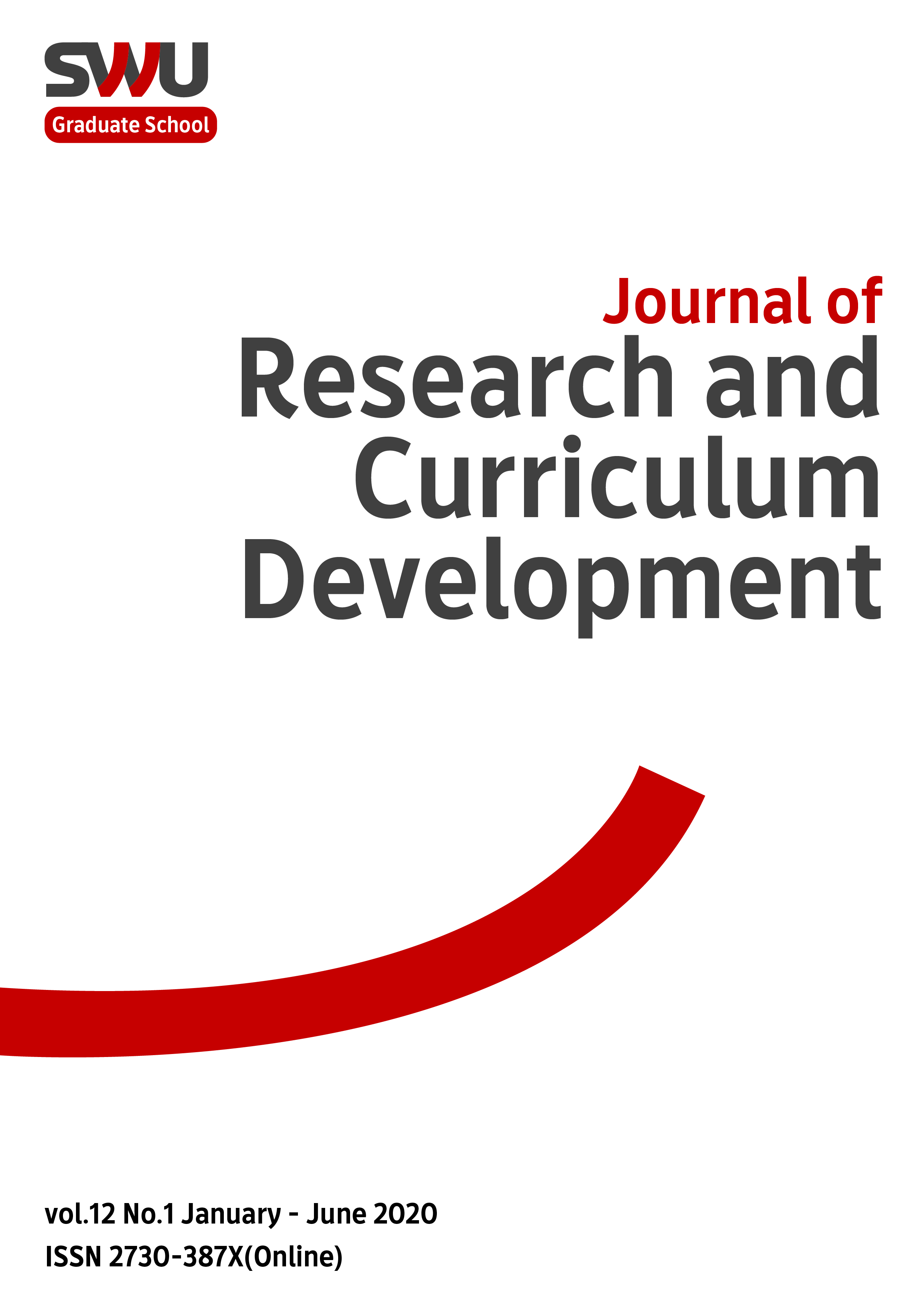Development of Online Learning to Enhance Critical Thinking on Violence Prevention among Adolescents
Keywords:
Online lessons, Critical thinking, Violence, AdolescentsAbstract
The aims of this research are as follows: (1) to develop an online learning lesson to enhance critical thinking skills about violence, (2) to study the results of using developed online lessons; and (3) to propose guidelines for disseminating developed online lessons to strengthen their critical thinking skills against adolescent violence. The research instruments consisted of an interview form, a critical thinking assessment test, a satisfaction questionnaire, and connoisseurship seminar issues. The data were analyzed in terms of percentage, mean, standard deviation, t-test, and content analysis. With regard to the research outcomes, the online lesson was developed from situations, texts, conversations, questions, images, poems, storybooks, and charts. The developed lesson was both consistent and appropriate for strengthening critical thinking skills regarding adolescent violence. After the lesson trial, the critical thinking skills of sampled adolescents against violence was higher than before at a statistically significant level of .05. The sample was satisfied with the online lesson at a high level overall. Regarding the dissemination, it was suggested that the development of online lessons for all age groups should be publicized in educational institutions, government or private agencies, as well as a wide range of media.
References
Agustin, M., Djoehaeni, H. & Puspita, R. D. (2020, May). Observational analysis of violence on children and the implications for parenting program development. Asia-Pacific Journal of Research in Early Childhood Education, 4 (2), 195-214.
Akatsuka, Y. (2020). Promoting critical thinking skills in an online EFL environment. Journal of Pan-Pacific Association of Applied Linguistics, 24 (2), 95-113.
Caliskan, S. et al. (2020). Lecturers’ views of online instructors about distance education and adobe connect. International Journal of Emerging Technologies in Learning (iJET), 15 (23), 145-157.
Conklin, W. (2012). Higher-order thinking skills. California: Shell Education.
Dressel, P. & Mayhew, L. B. (1957). General education: Exploration in evaluation (2nd ed.). Washington, D.C.: American Council on Education.
Ennis, R. H. (1989). Critical Thinking and Subject Specificity: Clarification and Needed Research. Educational Researcher, 18 (3), 4-10.
Hughes, C. (2020). Addressing violence in education: From policy to practice. Prospects: Quarterly Review of Comparative Education, 48 (1-2), 23-28.
Maxfield, L. (2020, September – October). Taking a beat: Feedback timing in the age of online lessons. Journal of Singing; Jacksonville, 77 (1), 91-94.
Morin, A. & Forman, J. (2019). Child development: Milestone and parenting tips. Retrieve October 30, 2020, from https://www.verywellfamily.com/child-development-overview-4172261.
Muchinsky, P. M. (1993). Psychology applied to work: An introduction to industrial and organizational psychology (4th ed.). California: Cole publishing.
Van Den Berg, G. (2020, October). Context matters: Student experiences of interaction in open distance learning. Turkish Online Journal of Distance Education, 21 (4), 223-236.
Vroom, V. H. (1964). Work and Motivation. New York: Jon Wiley & Sons.
Wathne, U. & Brodahl, C. (2017). Mathematics video podcasts as integrated elements of online lessons in further university education: In-service teachers’ flow experiences. Journal of the International Society for Teacher Education, 21 (1), 33-44.
Downloads
Published
How to Cite
Issue
Section
License

This work is licensed under a Creative Commons Attribution-NonCommercial-NoDerivatives 4.0 International License.





